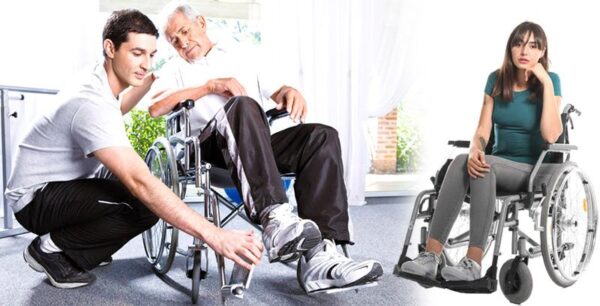
Source:Sundayobserver
Considered one of the most tragic illnesses to afflict young women in particular, Multiple Sclerosis still remains shrouded in superstitions. President of the Multiple Sclerosis Association of Sri Lanka (MSASL) Prof. Enoka Corea explains how early diagnosis and free treatment from state hospitals can help give patients better quality lives.
Excerpts from her interview with the Sunday Observer.
 Q. Today May 30 is World MS Day. Could you explain to our readers what Multiple Sclerosis means?
Q. Today May 30 is World MS Day. Could you explain to our readers what Multiple Sclerosis means?
A. Multiple Sclerosis is a disease where the immune system of the body (which is meant to fight infections) suddenly starts attacking your own body. Specifically, it attacks the myelin sheath of the nerves. The nerves are like electric wires that convey signals throughout the body. The myelin sheath acts as the insulation around these ‘wires’. When the myelin sheath is damaged the signals are not conducted properly resulting in malfunction of the nerves
Q. What are the main nerves that are affected?
A. Any nerve of the body may be affected. Common nerves include the optic nerve which results in blindness. The nerves to the limbs may be affected leading to difficulty walking and difficulty in doing daily tasks, like putting on buttons or even writing. If the nerves to the bladder are affected there may be incontinence.
Q. Every year there is a different theme to carry the message of MS to the world. What is it this year and how does it relate to the immediate needs of the MSS community?
A. The theme for World MS day 2021 is “Not Alone”. The theme draws attention to the networks that support and sustain MS patients and hopes to inspire more people to volunteer to support MS patients and their caregivers.
Q. We are now living amid the highly contagious Covid-19. How vulnerable are MS victims to this fast-spreading disease?
A. MS patients do not have a higher risk of catching Covid-19. However, if they have physical problems, such as difficulties in coughing and swallowing, they may be more at risk of developing complications. Some may be on treatment with drugs that suppress the immune system. These MS patients are also at a higher risk of complications.
Q. Do you recommend they take the vaccinations now being given to protect one from the disease?
A.Yes. MS patients, just like other patients with underlying illnesses, should be prioritised to receive early vaccination.
Q. Health officials in Sri Lanka have also confirmed that a new strain of the virus seen in the UK and some European countries has entered our country. What are the chances of MS patients exposed to it being able to survive if exposed to it?
A. MS patients do not have lowered immune systems, so they are at the same risk of infection as others. However, if they are on immunosuppressive drugs to control their illness they are more vulnerable to infections. In either case, any physical disability caused by MS can add to the risk of complications such as pneumonia.
Q. As President of the MSAL what are the precautions you have taken to minimise this risk both for the patient and for the caregivers looking after them?
A.The only way to minimise risk of infection is to adopt the same precautions that should be taken by everybody. That is to stay at home and refrain from gathering in crowds, wear a surgical mask whenever you meet people and wash your hands with soap and water frequently
Q. Gender wise and age wise who are more vulnerable to getting MS – males or females? What is the ratio?
A. Females are twice as more likely to get MS than men. Since the onset of MS is around 20-30 years, it affects mainly younger females who are just completing their higher education, starting a career or beginning their families. A diagnosis of MS in the mother or father is a blow to the entire family.
Q. Around how many MS patients are there in Sri Lanka?
A.The Association of Sri Lankan Neurologists estimate that there must be at least 1000 MS patients in Sri Lanka. However, a large number of them have not been diagnosed as yet, due to the illness starting with very non-specific problems, such as fatigue and tiredness. To diagnose MS, scans of the brain have to be performed and interpreted by a neurologist. Such facilities are only available in the larger hospitals.
Q. Causes? Can you inherit it?
A.The cause of MS, or why the immune system starts to attack one’s own body, is still unknown. MS is not a hereditary disease, although relatives of MS patients do have a slightly higher risk of developing MS, themselves
Q. Early symptoms?
A. MS onset can be very difficult to identify. Patients may only feel very tired and lethargic. Other common symptoms include visual problems, urinary incontinence and lack of balance.
Q. Are there different types of MS?
A. There are different types of MS depending on how rapidly the disease progresses. But usually MS follows a “relapsing, remitting” course. This means that there are episodes where MS flares up and the disease progresses over a short period of time. The symptoms that occur during this period gradually improve but there is usually some residual nerve damage. This is followed by varying periods of quiescence where the disease remains inactive (remittance). Then after a short or long period MS flares up again (relapse). However, these relapses can be reduced or even prevented by treatment.
The symptoms and signs of MS depend on the distribution and extent of nerve damage. They also depend on which type of MS the patient has. One important factor that will help patients to remain independent is regular physiotherapy and advice from an occupational therapist.
A physiotherapist will teach the patient and caregiver exercises to strengthen muscles and maintain flexibility while the occupational therapist is an expert in showing patient strategies to improve their quality of life and maintain independence, with the use of handrails, feeding spoons, ramps, etc.
Q. How is MS diagnosed? Are there special tests for this?
A.There is no special test for MS. The diagnosis is based on a careful examination by a neurologist who will attempt to exclude other causes of nerve damage. An MRI scan is also necessary to visualise the damage to the nerves. There are criteria laid down by international consensus and the disease is diagnosed on the basis of these criteria. These tests are available in Sri Lanka at all the major hospitals across the country.
Q. Is MS curable?
A. MS cannot be completely cured. However, some patients may experience only one episode and then remain free of disease for the rest of their lives, while others will need treatment to control the disease progression.
Q. Any new treatments that can help manage the disease and enable a better quality of life for patients?
A.There are lots of new treatments available to slow down the progression of the disease. However, they are unable to reverse the damage that has already occurred to the nerves. That is why early diagnosis for the patient to benefit from these treatments which are available at government hospitals, free of charge, is so important..
Q. Does a patient have to be warded while undergoing treatment?
A.When the patient is having an acute episode, they may be hospitalised for a short period to get the required injections. However, for the long term treatment and for physiotherapy they can continue with their normal lives while attending clinic regularly.
Q. Non communicable diseases (NCD) are rapidly overtaking communicable diseases in Sri Lanka. If an MS patient suffers from some chronic NCD can this aggravate her already compromised nervous system?
A. Like any of us with an NCD such as diabetes or hypertension, these illnesses can also affect our health and wellbeing. It is important for MS patients with such NCDs to be meticulous about controlling these diseases and maintain a healthy lifestyle.
Q. Will diet help?
A. It is important for all MS patients to maintain a healthy lifestyle by eating a diet low in calories and rich in vegetables and fruit. Preparing food at home, using fresh ingredients and avoiding fast food is the best antidote to illness. Eating small portions to maintain a healthy body weight will help the patient to maintain her mobility and independence and prevent the care giver from developing muscle strain when assisting the patient.
Q. Apart from the western treatment usually recommended, are there other options available for MS patients?
A. Like all of us, MS patients need regular exercise to improve their heart and lung function and strengthen their muscles. Exercise is also good for the mind and is a great stress reliever. Relaxation techniques such as meditation or yoga reduce physical and mental tension.
Q. Briefly tell us what led to the formation of the MSAL?
A. The Multiple Sclerosis Association of Lanka was founded in 2006 by Dr Hithaishi Weerakoon, a doctor with MS. She met a lot of patients in the clinic who felt isolated and neglected and brought them together to form a patient centered organisation that works to improve the quality of life of MS patients and their caregivers.
The MS patients have become friends and act as a support group to each other, sharing their own experiences and coping strategies and encouraging each other. The caregivers can also share their difficulties with each other and learn from each other.
Q. Is it a Ministry of Health approved charity? Who funds it?
A. The MSAL is registered as a company. It is funded by donations. These donations are used to provide patients with essentials such as wheel-chairs, commode wheelchairs, air mattresses, crutches, walkers and also provide monthly monetary assistance to families made destitute by this illness and assist them educate their children. Additionally we raise funds for special projects like building ramps, installing rails etc to improve infrastructure in patients’ homes. We also raise awareness of MS among doctors and the general public. Most importantly we bring together the MS patients to create an MS family in Sri Lanka.
Q. Gaps you wish to fill in optimal care to MS victims under the present new normal Covid 19 phase?
A. Care for MS patients should be in the community, not in hospitals. There should be dedicated nurses and physiotherapist who are able to conduct home visits and deliver care directly to the patients. They can train the caregivers in the home setting. All disabled persons, including stroke patients and even the elderly, will benefit if this type of community care is developed for those with disability
Q. Your message to the MS community?
A. The MSAL would like to invite all persons with MS to join the MSAL and contribute to its activities.
We will be grateful if doctors who care for MS patients would inform patients of this Association and its activities and refer them to the association or send us the names and addresses of patients.
The MSAL may be contacted at msalinfo@sltnet.lk or at 111 Inner Flower Road, Colombo 3 or on 0777319333. There are no costs or expenses incurred in joining the MSA.






